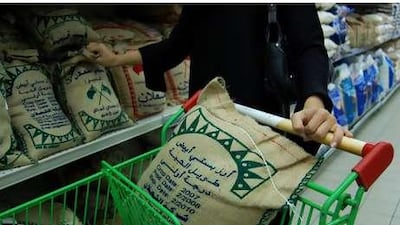Alternative monetary policies and strategic land investments will be key to overcoming regional shortfalls in food production and easing soaring inflation rates, according to a new report released by Standard Chartered Bank. The report, entitled "The Changing Profile of Food Investment", recommends that the Government address the impending crisis via the "3 Cs: cap, conserve and contract" - capping the price of basic commodities at local retail outlets, conserving water and contracting foreign land. These strategies, the report said, were essential for the sustainability of domestic food supplies in the region.
"We wanted to address why this crisis is happening by looking at the changing demographics, and the change in the size of available farmland in the region," said Abah Ofon, a global soft commodities analyst for Standard Chartered Bank. "Harvest area in this region is actually decreasing because of the huge amounts of water that are used." The report spotlights three primary factors that it says have driven up food prices in recent months, impacting the economies of the GCC: the effect of changing lifestyles, income and demographics on the agricultural sector; competition for acreage on finite arable land; and new international trade policies.
"Now you have 60 to 70 per cent of the population coming from Asia, so this will naturally have a dramatic effect on what types of food the population is demanding and where they import from," Mr Ofon said. Analysts with Standard Chartered emphasised that the issue of water conservation is at the forefront of concerns in the GCC, where the level of consumption is among the highest in the world. It takes 1,000 cubic metres of water to produce one tonne of wheat, and about 1,600 cubic metres for one tonne of beef.
The report also cited price caps as an appropriate short-term response to ease the burden of soaring food prices on consumers. In the UAE, the Government opted to impose price caps on agricultural products at 2007 levels on the rationale that higher local prices would disproportionately affect lower income groups. In line with a recent report by the Gulf Research Centre, analysts with Standard Chartered stress that investments in infrastructure must come hand in hand with farmland purchases in order to yield the best results.
Mr Ofon emphasised the importance of developing, promoting and investing in a mix of technologies and policies that are economically and environmentally sustainable. Enhancing the role of local farmers as stakeholders can improve the quality of investments, the report said, adding that countries will require the adoption of a participatory approach with regard to such investments. vsalama@thenational.ae

